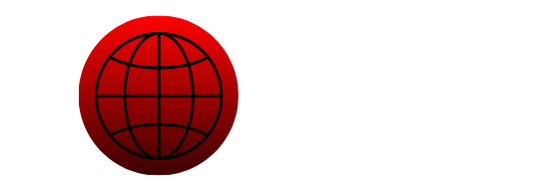- Home
- H-1C Visa
H1C Visa
The H1C visa was a special visa program created for foreign-registered nurses to work in the United States in areas facing a shortage of healthcare professionals. This program aimed to address critical nursing shortages in specific U.S. hospitals. Unlike other work visas, the H1C visa was designed specifically for registered nurses sponsored by medical facilities located in Health Professional Shortage Areas (HPSAs), as designated by the Department of Labor.
The H1C visa was an ideal solution for healthcare facilities in underserved areas that struggled to attract qualified U.S. nursing staff. Under this visa, nurses could work in the U.S. temporarily, helping to meet urgent healthcare needs. The program was capped at 500 visas per year and officially ended in 2009. However, it remains a landmark in U.S. immigration history and a model for future healthcare visa programs.
“The H1C visa was vital in addressing the healthcare needs of underserved U.S. regions, showing how targeted visa programs can help solve critical workforce issues,” as one immigration consultant noted.
H1C Visa Requirements
Although the H1C visa program has ended, its structure provides valuable insight for similar visa categories. Key requirements included:
- A valid nursing license in the applicant’s home country
- Eligibility to work as a registered nurse under U.S. state law
- Employment secured from a hospital in a Health Professional Shortage Area (HPSA)
- An approved Labor Condition Application (LCA) filed by the employer
- A U.S.-equivalent nursing degree and successful completion of the NCLEX-RN
Did You Know:
U.S. hospitals still face nursing shortages today—especially in rural and underserved communities.
The H1C Visa Application Process
The process was relatively streamlined:
- The sponsoring U.S. hospital filed an LCA with the Department of Labor
- The hospital submitted Form I-129 to USCIS on the nurse’s behalf
- After approval, the nurse attended a visa interview at the U.S. consulate
- If approved, the nurse could work in the U.S. for up to 3 years, with possible extensions
Though the program has ended, its legacy shapes how future medical visa programs are designed.
Nursing Opportunities Await – Let Atlanta Immigration Services help you explore viable U.S. medical visa options.
Rights and Obligations of an H1C Visa Holder
Key rights included:
- Work was permitted only at the designated healthcare facility
- Visa was valid for three years, with possible extensions
- Full protection under U.S. labor laws, including fair wages and safe working conditions
Did You Know:
As U.S. demand for nurses increases, opportunities for foreign-trained nurses are expanding too.
Common Reasons for H1C Visa Denial
- Employer failed to obtain an approved LCA
- Hospital was not located in a designated HPSA
- Missing documents like licensing or educational proofs
Bringing Dependents on an H1C Visa
H1C nurses were allowed to bring:
- Spouses and unmarried children under 21 on H-4 visas
- Dependents could study but not work without additional authorization
“While H1C visa holders could bring their families, dependents were restricted from employment, which required careful planning.”
Extending an H1C Visa
Extensions were possible if:
- The hospital remained in a HPSA, and
- Services were still required
Extension process involved:
- Filing a new LCA
- Employer petitioned USCIS for a stay extension (up to 3 more years)
- Processing was generally faster than the initial visa approval
H1C Visa and Permanent Residency Options
Even though the H1C visa was temporary, holders could:
- Transition to permanent residency through employer sponsorship
- Begin the process with a PERM Labor Certification
- Proceed to Form I-140 (Immigrant Petition for Alien Worker)
How Atlanta Immigration Services Can Help You
At Atlanta Immigration Services, we understand how complex U.S. immigration laws can be—especially for nurses and healthcare professionals. While the H1C program has ended, other immigration options remain available for qualified foreign nurses.
Our experienced consultants help:
- Identify the right visa category for your needs
- Prepare and organize licensing, credential evaluations, and labor certifications
- Assist employers with LCA filings and petition preparation
- Guide individuals and hospitals through status transitions or green card processes
Whether you’re a nurse seeking to work in the U.S., or a healthcare employer needing qualified staff, Atlanta Immigration Services provides end-to-end immigration support.
Conclusion
Though the H1C visa program has ended, its success story continues to inspire future healthcare visa programs. For registered nurses looking to work in the U.S., other medical visa options—such as H-1B, EB-3, or TN visas—offer similar opportunities with different requirements.
Atlanta Immigration Services offers full-spectrum immigration consulting to help you navigate the path to U.S. employment in the healthcare sector. From document preparation to application filing and beyond—we’re here to support your journey.
Contact Atlanta Immigration Services today to explore your best visa options for working as a healthcare professional in the U.S.
DO YOU NEED SUPPORT !
NEWSLETTER
Subscribe to the mailing list and get the fresh content!
Subscribe to the mailing list and get the fresh content!
